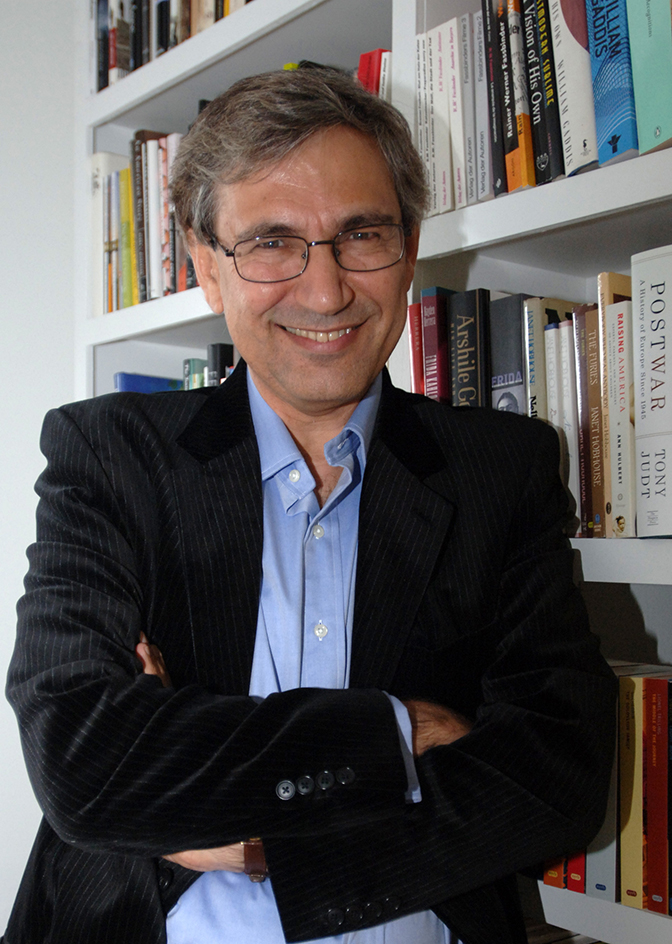Pamuk, Orhan << pah MOOK, or HAHN >> (1952-…), a Turkish novelist, received the 2006 Nobel Prize in literature. Pamuk became the first Turkish citizen to win a Nobel Prize in any field. Pamuk gained international popularity for his novels about the conflicts of cultures within Turkey and the city of Istanbul, where he was born and raised. These culture conflicts include clashes between the past and the present, between East and West, and between secularism (nonreligious attitudes) and Turkey’s national religion of Islam. Critics have praised Pamuk for his adventurous style, which often suggests that personal identities are interchangeable and that there is no clear line that separates reality from fantasy.

Pamuk won immediate recognition with his first novel, Cevdet Bey and His Sons (1982), the story of a wealthy Istanbul family. The novel provides a portrait of the modern Turkish ruling class and the development of capitalism in Turkey. In Silent House (1983), five narrators tell the story of a Turkish family in the month before the military takes control of the country in 1980. The White Castle (1985) was Pamuk’s first novel to be translated into English. It tells about a young Italian student captured by Turkish pirates in the 1600’s and given to a scholar. The story describes how dominance switches back and forth between the master and the slave.
In Pamuk’s novel The Black Book (1990), a young lawyer searches the streets of Istanbul for his wife, who has vanished without explanation. The New Life (1994) describes the journey of a Turkish student seeking a mysterious woman and her lover. My Name Is Red (1998) is a kind of murder mystery set in the 1500’s and narrated from many points of view. Snow (2002) portrays a young Turkish poet’s encounter with political and religious conflict in a remote Turkish town. The Museum of Innocence (2008) is set in Istanbul during the 1970’s and 1980’s and describes an upper-class man’s obsessive and doomed love for a poor relation. A Strangeness in My Mind (2015) is a love story about an Istanbul street vendor told from the viewpoints of many characters. In The Red-Haired Woman (2017), Pamuk portrays the bond between a well digger and his young apprentice as they travel throughout Turkey, exchanging stories and myths as they work. Nights of Plague (2022) takes place in 1900 on an imaginary Mediterranean island where the people—half of them Muslims and the other half Orthodox Greeks—face an outbreak of bubonic plague.
Pamuk’s nonfiction book Istanbul: Memories and the City (2003) combines personal reminiscences of growing up in Istanbul with observations about the city’s complex history. A selection of his essays and a short story were published as Other Colors (2007). Pamuk’s Harvard University lectures on the experience of reading a novel were collected in The Naive and the Sentimental Novelist (2010).
Pamuk was born on June 7, 1952, in Istanbul. He came into conflict with the Turkish government in 2005 by telling a Swiss periodical that Turkey was responsible for 1 million Armenian deaths from 1915 to 1917 (see Armenia (Ottoman rule)). The Turkish government does not contest the fact that the deaths occurred, but has denied the accusation that the deaths were genocide (the deliberate destruction of a national, racial, political, religious, or cultural group). Pamuk was put on trial for insulting his country. The court dismissed the charges on a technicality, but Pamuk’s arrest made him a hero for many people in the fight for free speech in Turkey.
